I’m guessing the vast majority of you who are reading this post have a blog.
You’ve been told that having one is the best way to connect with your customers, to generate leads and to become an established expert in your niche.
You’ve probably also heard it’s the #1 strategy you need for inbound marketing and SEO, AND that it’s one of the best ways to (ultimately) increase sales.
So, this begs the question: are you accomplishing any of these goals with your blog?
If the answer is no, you’re not alone. While business blogging CAN be fun, I know you’re not doing it simply for your own enjoyment.
You’re doing it to grow your business and to increase sales. Period.
Yes, there are other benefits to business blogging that happen along the way, but ultimately, if your blog isn’t building your business, why bother?
Following are 35 strategies you can use to build a successful business blog and accomplish your goals.
Yep, I said 35!
No more blogging just because you should. Follow these strategies and then sit back and watch your blog increase your leads, authority and sales!
Let's get started with a BLOG PLAN
- Get your blog started off on the right foot. This will mean choosing a blogging platform and web host that are compatible with business blogging. I’ve broken these important steps down for you in my posts How To Start A Blog In 30 Minutes Or Less and How To Choose A Web Host
- Be serious about posting regularly. Don’t just post when you feel like it. Be intentional about what you post, and stick to a schedule.
- Stick to a schedule….BUT be flexible. Be prepared to jump on breaking news. If something big happens in your industry, don’t be afraid to change your schedule to stay current.
- Be a fly on the wall to find out what your audience REALLY wants. Through visiting niche forums, reading blog comments and monitoring social media, figure out what your audience wants you to write about (as opposed to what you think they want you to write about).
- Decide WHO you’re writing for. Who’s your ideal customer? What does he or she want to learn about? You can’t please everyone all the time, so don’t even try.
- Decide WHAT the #1 goal of your blog is. Assuming it’s to drive sales, what do you need to implement to make this happen? How does your blog fit into your online marketing funnel? Do you plan to make money directly from your blog through affiliate marketing, advertising or through other methods?
- Investigate tools that will save you time and make your posts better. Some of my favorites are BuzzSumo, Canva and Portent’s Content Idea Generator. Check out my post The Ultimate Content Marketing Tools List to find out which tools I use and love!
- Determine your voice. How do you want your readers to perceive you through your writing? Fun and casual? Professional? Authoritative? Choose a voice and then be consistent with it.
- Decide if you can do everything yourself. Be realistic about how much time you have to commit to blogging, and whether you have the skills that are necessary. Plan to delegate or outsource your blogging if necessary.
Now comes the fun part – WRITING your blog
- Write evergreen content. Write longer posts that stand the test of time…these will drive engagement and traffic for months or even years to come. Some great ideas for evergreen content include list posts, tutorials and comprehensive guides.
- Have an opinion. Don’t be afraid to be a bit controversial at times; you’re a real person with real opinions and ideas!
- Follow your own process. When writing, do what works best for YOU. Some experts say to draft an outline first, but if you find writing off-the-cuff works best (and your audience loves what you write), then forget what the experts say and just do your thing!
- Write for scannable reading. The majority of your readers will scan and skim your content, not read it word for word. Format your posts with this in mind: use bulleted and numbered lists, headings and shorter sentences and paragraphs.
- Use the best length for your audience. Some experts say your blog posts should be a minimum of 1,000 words, while others say 2,000+. While longer is often better, see what works best with your audience!
Research does seem to suggest that longer content ranks better in the search engines
- Write about a variety of topics your audience would find interesting. Not sure what these topics are? Check out my post How To Come Up With BIG Ideas To Create Super Awesome Content Every Single Time.
- Focus on quality over quantity. If you have limited time, it’s better to write one or two high-quality posts each week than five ‘fluffy’ ones.
- Be generous about giving away your knowledge. Make sure the vast majority of your content is available for free. People need to see you know what you’re talking about before they’ll be willing to pay!
- Spend time on your headlines. Your headlines are the #1 factor that determine whether your posts will get read or not, so focus on attention-grabbing titles. For help with this, see my post The Ultimate Guide To Writing Social Media (And Blog) Headlines That Get More Clicks.
- Use eye-catching images. Use Creative Commons Search or PhotoPin to find amazing (free!) images to use in your posts. You can also use a free tool like Canva to create your own images.
Canva is my go-to resource for creating eye-catching images
- Optimize your posts for the search engines. Do some basic keyword research to find words and phrases your audience searches for in Google. Write content that comprehensively covers those topics, and use those phrases in strategic places throughout your content.
Next up…ENGAGING with your readers
- Ask questions at the end of your posts. Explicitly ask readers to comment on your posts. It’s amazing how one small call to action can make such a difference!
- Take the time to respond to comments. Show you care by reading and responding to blog comments in a timely manner.
- Get your readers into your online sales funnel. One way to do this may be to include a call to action to join your email list.
- Respond to comments with a blog post (from time to time). If you notice a particularly helpful comment from a reader, write a blog post in response. This shows you read and actually care about your readers’ comments.
Is it working? You gotta pay attention to the numbers!
- Pay attention to your analytics…but keep it in perspective. Don’t obsess over data, but use it to see where your traffic is coming from, and to determine whether your content is meeting its mark. Look for which post-formats or topics are getting the most traction, and write spin-off posts to attract even more traffic.
- Watch for long-term trends. Paying attention to the growth (or decline) of your blog over time allows you to evaluate whether all your efforts are really working.
- Pay close attention to which types of content convert. If your #1 goal is to drive sales, determine which types of content ultimately drives sales.
Don't even start writing a blog if you don't have a plan to PROMOTE it!
- Respond to other people’s blog posts. Read and comment on other people’s blogs to drive traffic and build relationships. You can even write entire blog posts in response to ones you’ve read (this works particularly well for posts on controversial topics).
- Make use of guest posting. Post on other blogs in your niche to drive targeted traffic to your site.
- Regularly promote your posts on social media. Let your social media followers know when you publish a blog post. Rather than just posting a link, be sure to include a brief (enticing) summary so people know exactly what they’re clicking on.
- Be active elsewhere online. Be a regular in industry LinkedIn and Facebook groups, in niche forums, and on other people’s blogs and social media.
- Build links to your site. Have a plan in place for getting inbound links that help with both your search engine rankings and with referral traffic to your site. Also be sure to include links to your own content within your posts; this will help with SEO and user experience, and keeps your visitors on your site longer.
- Link to influential blogs within your content. This is a great way to reach out to other bloggers and potentially get links back to your site as well.
- Promote your content via social bookmarking sites. Sharing to sites like Reddit and Digg can drive TONS of traffic to your blog posts. Make a point of regularly sharing and engaging in those communities.
- Post your content to Scoop.it. This lets other people curate your content and helps you expand your audience…without having to lift a finger!
And there you have it – the ultimate guide to building a successful business blog.
What other strategies have worked for you? What would you add to this list? Share in the comments below!
About Author
Kim Garst
Kim Garst is a renowned marketing strategist and speaker who is trailblazing the use of artificial intelligence in digital marketing. With over 30 years of experience as an online entrepreneur, Kim helps entrepreneurs grow their business and authority online by using AI technology. She is leading the way with proven AI frameworks that help entrepreneurs build authority in their space.
She is keynote speaker and an international best-selling author of Will The Real You Please Stand Up, Show Up, Be Authentic and Prosper in Social Media.
Named by Forbes as a Top 10 Social Media Power Influencer, Kim is well-known for her skill to simplify complex technology and make the use of AI understandable for business growth. Her relatable, actionable advice helps guide new entrepreneurs to harness the power of AI to succeed in digital marketing. Kim is leading the way in combining human and technological skills to create a new model for AI-powered marketing.


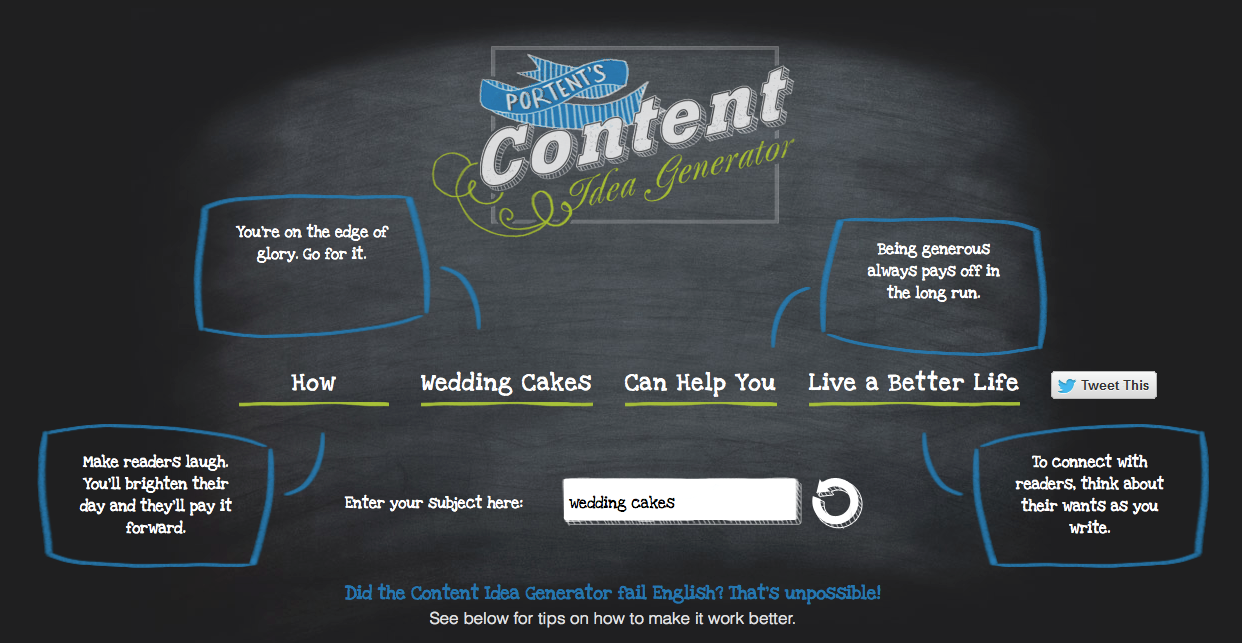

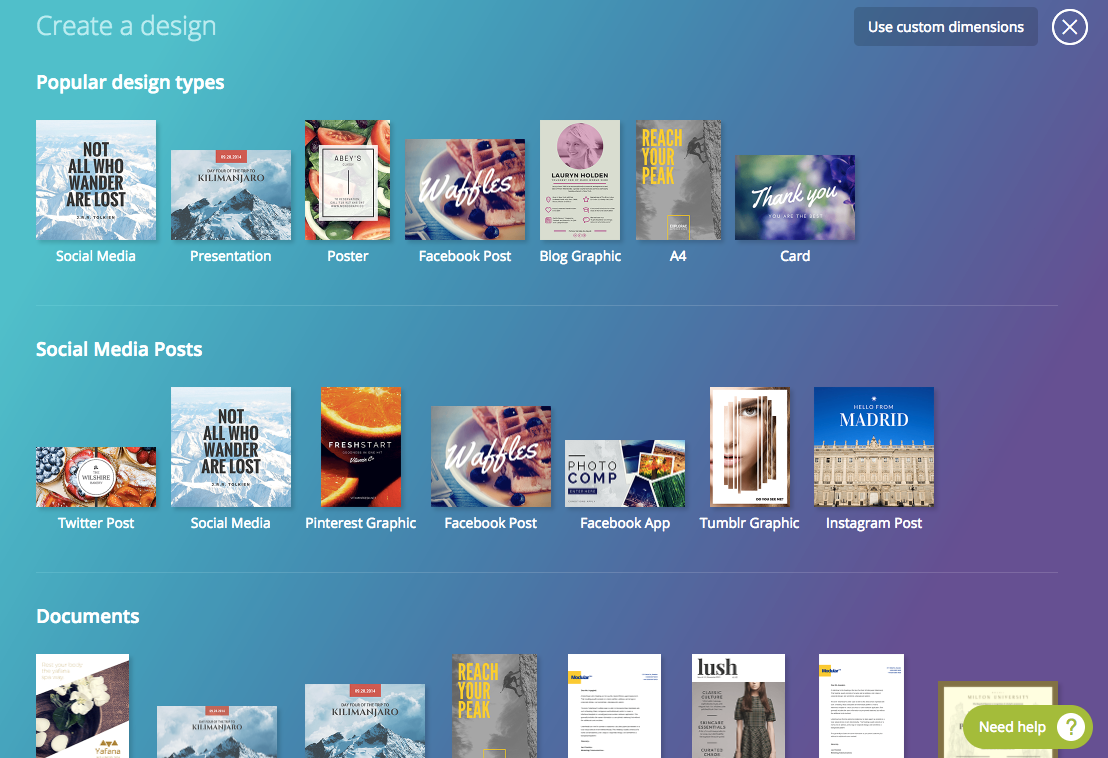
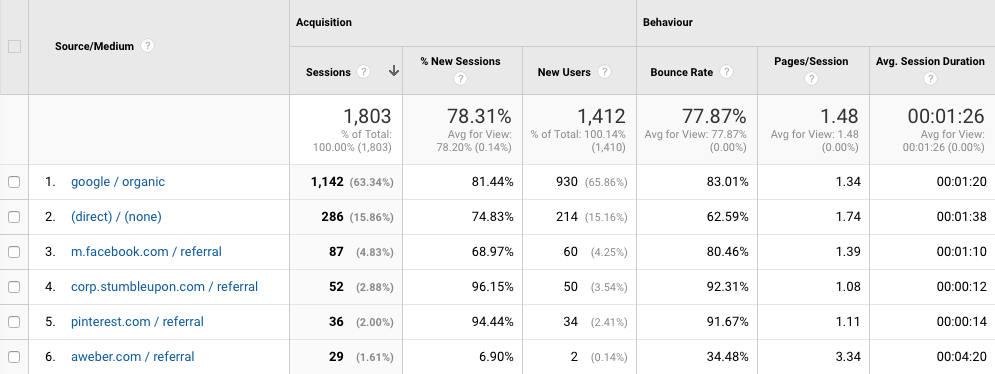
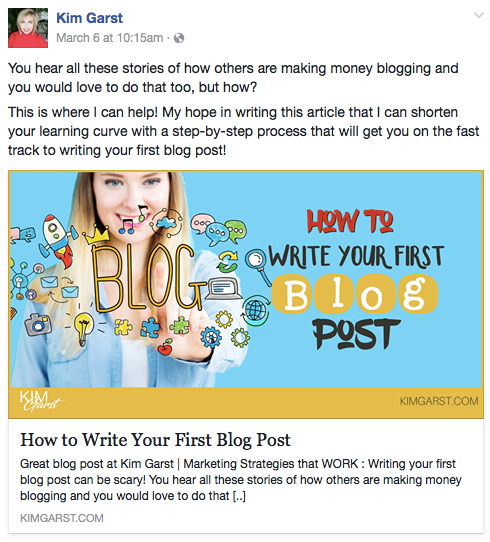
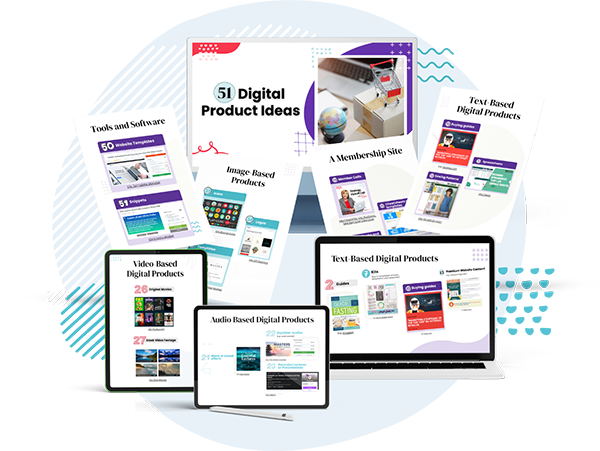
44 thoughts on “The Ultimate Guide to Building a Successful Business Blog”
You said it…consistency and hard work!
Interesting! I haven’t dug into Stumbleupon very much but I have heard that it’s a great traffic source!
Take one or two at a time and focus there, Elke 🙂
Some great advice here Kim, thank you for sharing. I’ll definitely be implementing some of these tips, will let you know if they’re successful. I can vouch for stumbleupon, I used to use it a few years back on a blog I managed, it was great for bringing traffic to the site.
Love hearing great things about Stumbleupon!
Awwwhhh, what a lovely compliment! Thank you, Kim!
There are some really great ideas on this list. I shall definitely be investigating the use of Reddit and Stumbleupon. Thank you for posting this blog.
Glad you got some value from this one, Jo 🙂
Thanks Sharon 🙂 Means the world to me!
Thanks Neil! 🙂
Consistency is sooo very important…totally agree, Matt!
I totally agree with you, Lisa! Consistency is sooo critical to truly building a successful business blog!
I believe that #15 is the most important aspect to business building using blogging. It’s all about QUALITY.
A huge piece of a successful blog is QUALITY…quality and relevant content at that.
Awwhhh, thanks Steve! So glad you get value here!
So glad you are getting value here, Andrea!
It’s great for curating content and MANY are using it so it creates backlinks to your content when they do.
Linkedin and Facebook groups are a great place to start, Tina.
I am a new and reluctant participant in this world of mass media. However, this article has stirred my interest. Great list of suggestions!!!
Thanks Kim for the insight. I am thinking of starting to blog in the coming weeks, so your post was very useful to me. And looking forward to more of it!
Thanks for these great tips Kim.
Great insight on how to start your own business, business starters (of course along side with businessmen) are the backbone of our economy
Great work Kim. Hopefully, this SEO thing becomes much easier for me in due time. Thanks for sharing.
Business consultant looking to work with business owners that either want to sell their business or would like help taking it to the next level.
Fantastic Tips as usual Kim, great reminder need to start to do more guest posting again, thank you
It is so late here that I am having to bookmark the page to come back to. A huge amount of relevant information, all actionable and nothing that leaves you scratching your head. Great article.
I am actually just starting a blog and working on SEO as well. Thank you so much for this very valuable information, this is great!
Small businesses should go for digital marketing to run their business in this pandemic. great content thanks for sharing
Thanks for sharing this article.
This is very helpful. I’ve been trying to research guides and recommended tools to grow my website. Thanks for this!
very nice and great information to Build a Successful Business thanks for sharing such great informations
I have just started my blog site and working on SEO. very helpful info.
5. I am very happy with your blog information with good ideas. Thanks for the awesome tips.
Thanks for sharing information. I enjoyed reading the blog. Keep on sharing!
Thanks for sharing,
It’s very informative for me, I really enjoy this content.
Lovely post!
Thanks for sharing this post here with us. I just loved to read this blog.
Great deals of important information and the article is great. I am bookmarking it for future reference and consultation. Many thanks for sharing! 🙂
This article is such a great help and very informative. Waiting for more interesting topics. Kudos! 🙂
Great deals of important information and the article is great. I am bookmarking it for future reference and consultation. Many thanks for sharing! 🙂
Try our white-hat strategies and processes to make you top in the Search Engine!Extremely useful information.Thank you for sharing this article. Keep sharing
Hi Author,
I definitely appreciated every part of it and I have you book marked
to look at new things on your web site.
I will apply these tips and techniques to find the right website for blog commenting.
Thanks for this wonderful post I really got many valuable information through it.
Great share! Thoughts, tips, and suggestions share above are very useful. I could very well relate to many of the things you noted in the sharable post
Great work, I just became aware of your content and I’m in the midst of a fairly serious binge. Thank you for driving the point home around outsourced posts. I believe outsourcing can help the average agent compete against deep pocketed disruptors